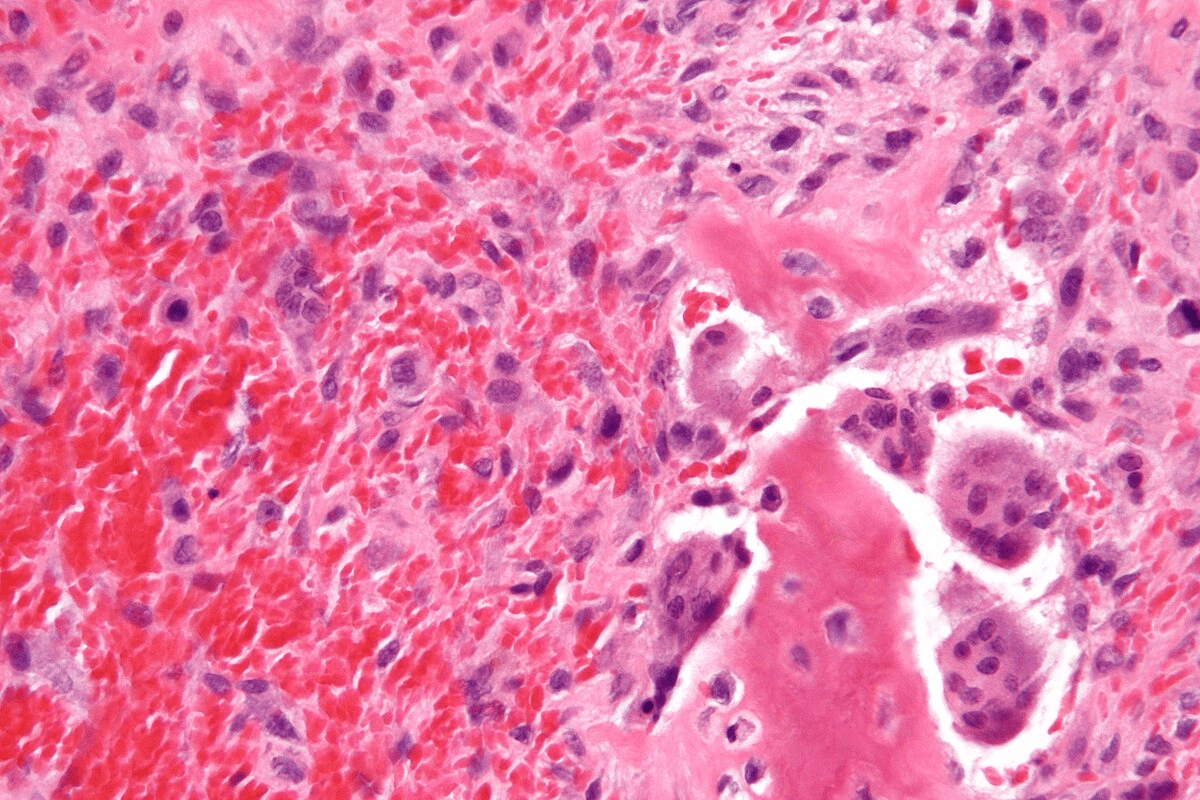Last Updated on November 26, 2025 by Bilal Hasdemir

Autoimmune disorders affect millions worldwide, posing a big challenge for both patients and doctors. We know there are over 80 different conditions, including rare ones that are not well understood.
At Liv Hospital, we’re dedicated to top-notch, patient-focused care for all autoimmune diseases. Our detailed management plan helps patients get the support they need.
We aim to provide world-class healthcare to patients from around the globe. Our team is committed to improving the lives of those dealing with these conditions.
Key Takeaways
- Over 80 recognized autoimmune disorders exist, including rare conditions.
- Liv Hospital provides complete care for autoimmune diseases.
- Our patient-centered approach supports international patients.
- We offer advanced medical treatments for complex conditions.
- Comprehensive management is key to improving patient outcomes.
Understanding Autoimmune Disorders: When the Body Attacks Itself
In autoimmune disorders, the immune system mistakenly attacks the body’s own cells. This leads to chronic illnesses. It’s a complex issue involving genetics, environment, and immune system problems.
The Immune System’s Mistaken Identity
The immune system is meant to fight off harmful pathogens. But in autoimmune disorders, it sees the body’s own cells as enemies. This mistaken identity causes a range of health problems, depending on the body part affected.
The exact reasons for this immune system failure are not fully known. But it’s thought that genetics and environment are key. For example, some infections or chemicals might start an autoimmune response in certain people.
Common Characteristics of Autoimmune Conditions
Autoimmune disorders share some common traits. These include:
- Chronic inflammation: Many autoimmune diseases cause ongoing inflammation in affected tissues or organs.
- Autoantibodies: Autoimmune conditions often have autoantibodies, which are antibodies against the body’s own proteins.
- Variable disease course: Autoimmune disorders can vary a lot. Some people have periods of remission, while others face ongoing symptoms.
Prevalence and Demographics
Autoimmune disorders affect a lot of people worldwide. Women are more likely to get them, often during their childbearing years. This gender disparity might be linked to hormones.
The frequency of autoimmune disorders also changes in different populations and places. Some autoimmune diseases are more common in certain ethnic or racial groups. This shows how genetics and environment interact.
What Are the 80 Different Autoimmune Disorders? A Complete Overview
Autoimmune disorders are complex diseases where the immune system attacks the body’s own cells and tissues. They can affect any part of the body, causing a wide range of symptoms and varying in severity.
We group autoimmune diseases by the body parts they affect and their symptoms. Knowing these groups is key for diagnosis and treatment.
Defining Autoimmune Disease Categories
Autoimmune diseases are divided into several groups based on the organs or systems they target. This division helps us understand the wide range of these conditions.
- Organ-specific autoimmune diseases, where the immune response is targeted towards a specific organ.
- Systemic autoimmune diseases, which affect multiple organs or systems throughout the body.
Organ-Specific vs. Systemic Autoimmune Conditions
Organ-specific diseases, like Type 1 Diabetes, target specific organs. For example, Type 1 Diabetes attacks the pancreas’ insulin-producing cells. Systemic diseases, such as Systemic Lupus Erythematosus (SLE), can hit multiple organs like the skin, joints, kidneys, and brain.
Knowing whether a disease is organ-specific or systemic is important for choosing the right treatment.
The Spectrum of Severity: From Mild to Disabling
Autoimmune diseases range from mild to severe. Mild conditions might have little impact on daily life. Severe diseases, on the other hand, can greatly reduce quality of life.
| Disease Severity | Characteristics | Examples |
|---|---|---|
| Mild | Minimal symptoms, manageable with lifestyle adjustments | Mild psoriasis, mild Hashimoto’s thyroiditis |
| Moderate | Noticeable symptoms, requiring medical treatment | Rheumatoid arthritis, moderate lupus |
| Severe/Disabling | Significant impairment, potentially life-threatening | Severe lupus, advanced multiple sclerosis |
Grasping the severity spectrum is essential for creating effective treatment plans and improving patient outcomes.
The Most Common Autoimmune Disorders
Autoimmune disorders affect millions worldwide. It’s important to know the most common ones for early diagnosis and treatment. We’ll look at the key features, symptoms, and treatment options for these prevalent conditions.
Type 1 Diabetes: When the Pancreas Is Under Attack
Type 1 diabetes is when the body attacks the insulin-making cells in the pancreas. This leads to a lack of insulin, forcing people to use insulin therapy.
Symptoms: You might feel thirsty and urinate more, feel tired, see blurry vision, and lose weight.
Diagnosis: Doctors check your blood glucose levels and look for autoantibodies through blood tests.
Rheumatoid Arthritis: Joint Inflammation and Destruction
Rheumatoid arthritis (RA) is a chronic condition that mainly harms the joints. It causes inflammation and can damage the joints, leading to deformity.
Symptoms: You might experience joint pain, swelling, stiffness, and have trouble moving your joints.
Treatment: Doctors use DMARDs, biologic agents, and lifestyle changes to manage RA.
Systemic Lupus Erythematosus (SLE): The Great Imitator
SLE is a complex autoimmune disease that can harm many organs, like the skin, joints, kidneys, and brain. Its varied symptoms make it hard to diagnose.
Symptoms: Symptoms can include skin rashes, joint pain, kidney problems, and neurological issues.
Diagnosis: Doctors use a combination of clinical evaluation, lab tests (like ANA, anti-dsDNA), and sometimes biopsies to diagnose SLE.
Psoriasis and Psoriatic Arthritis: Skin and Joint Involvement
Psoriasis is an autoimmune condition that causes skin inflammation. Some people also get psoriatic arthritis, which affects the joints.
Symptoms: Symptoms include red, scaly skin patches (psoriasis) and joint pain and swelling (psoriatic arthritis).
Treatment: For skin symptoms, doctors use topical treatments, light therapy, and systemic medications. For joint symptoms, they prescribe DMARDs and biologics.
| Disease | Primary Symptoms | Diagnostic Approaches | Treatment Options |
|---|---|---|---|
| Type 1 Diabetes | Increased thirst, urination, fatigue | Blood glucose, autoantibody tests | Insulin therapy |
| Rheumatoid Arthritis | Joint pain, swelling, stiffness | Clinical evaluation, rheumatoid factor | DMARDs, biologics |
| SLE | Variable: skin, joints, kidneys, brain | Clinical, ANA, anti-dsDNA tests | Corticosteroids, immunosuppressants |
| Psoriasis/Psoriatic Arthritis | Skin patches, joint pain | Clinical evaluation, sometimes biopsy | Topicals, light therapy, DMARDs |
Gastrointestinal and Liver Autoimmune Disorders
The gastrointestinal system and liver can face many autoimmune disorders. Each one has its own set of symptoms and challenges. These conditions happen when the immune system attacks the body’s own tissues, causing inflammation and damage.
Celiac Disease and Gluten Sensitivity
Celiac disease is a chronic condition that mainly affects the small intestine. It’s caused by gluten, found in wheat, barley, and rye. This immune reaction damages the small intestine’s lining, leading to poor nutrient absorption. Symptoms include diarrhea, abdominal pain, and fatigue. A strict gluten-free diet is the main treatment.
Gluten sensitivity is different. People with this condition get symptoms similar to celiac disease after eating gluten. But, they don’t have the same level of intestinal damage. The exact cause is not fully understood, and diagnosis is often based on ruling out other conditions.
Key differences between Celiac Disease and Gluten Sensitivity:
| Characteristics | Celiac Disease | Gluten Sensitivity |
|---|---|---|
| Immune System Reaction | Autoimmune reaction damaging the small intestine | Non-autoimmune reaction; symptoms triggered by gluten |
| Intestinal Damage | Present | Absent |
| Diagnostic Approach | Blood tests and intestinal biopsy | Exclusion of celiac disease and other conditions |
Inflammatory Bowel Diseases: Crohn’s and Ulcerative Colitis
Inflammatory bowel disease (IBD) includes Crohn’s disease and ulcerative colitis. Both are chronic conditions caused by an abnormal immune response. They lead to inflammation in the gastrointestinal tract.
Crohn’s disease can affect any part of the GI tract, but often hits the terminal ileum. Symptoms include abdominal pain, diarrhea, weight loss, and fatigue.
Ulcerative colitis mainly affects the colon, causing inflammation and ulcers. Symptoms include bloody diarrhea, abdominal pain, and urgency.
“The management of IBD requires a complete approach, including medication, lifestyle changes, and sometimes surgery, to control symptoms and prevent complications.”
Autoimmune Hepatitis and Primary Biliary Cholangitis
Autoimmune hepatitis is when the immune system attacks liver cells, causing inflammation. If not treated, it can lead to cirrhosis. Symptoms include fatigue, jaundice, and abdominal discomfort.
Primary biliary cholangitis (PBC) is an autoimmune disease affecting the bile ducts in the liver. It can lead to cirrhosis. Symptoms include fatigue, itching, and jaundice.
Rare Digestive Autoimmune Conditions
There are many rare autoimmune disorders affecting the GI system and liver. These include autoimmune pancreatitis, IgG4-related disease, and primary sclerosing cholangitis, among others. Diagnosing and managing these conditions can be tough due to their rarity and complexity.
We understand the complexity and variety of GI and liver autoimmune disorders. Accurate diagnosis and tailored treatment plans are key to managing these conditions effectively.
Endocrine System Autoimmune Disorders
Endocrine autoimmune disorders happen when the immune system attacks hormone-producing glands. This leads to health problems. The endocrine system, including glands like the thyroid and pancreas, controls many body functions through hormones.
Hashimoto’s Thyroiditis and Graves’ Disease
Hashimoto’s thyroiditis and Graves’ disease are common endocrine autoimmune disorders. They affect the thyroid gland. Hashimoto’s causes hypothyroidism, where the thyroid doesn’t make enough hormones. Graves’ disease leads to hyperthyroidism, with too many thyroid hormones.
Hashimoto’s thyroiditis symptoms include fatigue, weight gain, and cold intolerance. Graves’ disease symptoms are weight loss, palpitations, and heat intolerance. Treatment involves medication to balance thyroid hormone levels.
“Autoimmune thyroid diseases, such as Hashimoto’s thyroiditis and Graves’ disease, are among the most common autoimmune disorders, significantly impacting patients’ quality of life.”
Addison’s Disease and Adrenal Insufficiency
Addison’s disease affects the adrenal glands, causing adrenal insufficiency. This means the glands don’t make enough cortisol and aldosterone. These hormones are key for stress response and blood pressure regulation.
Symptoms of Addison’s disease include fatigue, muscle weakness, and skin color changes. Treatment involves hormone replacement with medication.
Less Common Endocrine Autoimmune Conditions
There are less common endocrine autoimmune disorders too. These include autoimmune hypophysitis, affecting the pituitary gland, and autoimmune polyglandular syndromes, impacting multiple glands.
These rare conditions can be hard to diagnose because of their rarity and varied symptoms. A detailed diagnostic approach is key to managing them well.
In conclusion, endocrine system autoimmune disorders affect hormone production and overall health. Understanding these conditions is vital for proper care and support.
Skin and Connective Tissue Autoimmune Disorders
Skin and connective tissue autoimmune disorders are a wide range of conditions. They can greatly affect a person’s quality of life. These disorders happen when the immune system mistakenly attacks the skin and connective tissues. This leads to various symptoms and complications.
Scleroderma: When Skin and Tissues Harden
Scleroderma, also known as systemic sclerosis, is a chronic autoimmune disease. It causes the skin and connective tissues to thicken and harden. It can also harm internal organs, making it a serious condition. Early diagnosis and treatment are key to manage symptoms and slow the disease.
- Localized scleroderma: Affects only the skin.
- Systemic scleroderma: Affects the skin and internal organs.
Dermatomyositis and Polymyositis
Dermatomyositis and polymyositis are autoimmune diseases that affect muscles and, in dermatomyositis, the skin. Muscle weakness and skin rashes are common symptoms. These conditions can be hard to diagnose and need a detailed treatment plan to manage symptoms and prevent damage.
Vitiligo and Alopecia Areata
Vitiligo and alopecia areata are autoimmune conditions that affect the skin and hair. Vitiligo causes loss of skin pigment, leading to white patches. Alopecia areata results in hair loss. Treatment options vary and may include topical corticosteroids, immunotherapy, or light therapy.
- Vitiligo: Characterized by loss of skin pigment.
- Alopecia Areata: Results in patchy hair loss.
Rare Skin Autoimmune Conditions
There are several rare autoimmune conditions that affect the skin, including pemphigus and epidermolysis bullosa acquisita. These conditions can cause blistering, skin fragility, and other symptoms. Diagnosis and treatment by a specialist are essential to manage these complex conditions effectively.
We understand the challenges posed by skin and connective tissue autoimmune disorders. At our institution, we are committed to providing complete care and support to patients with these complex conditions.
Neurological and Neuromuscular Autoimmune Disorders
Neurological and neuromuscular autoimmune disorders are complex conditions. The immune system attacks the body’s own tissues. These disorders can greatly affect life quality, causing symptoms from mild to severe.
Myasthenia Gravis: Muscle Weakness and Fatigue
Myasthenia gravis is a chronic autoimmune disorder. It causes muscle weakness and fatigue. The immune system makes antibodies that harm the nerve and muscle connection.
Symptoms vary but often include drooping eyelids, double vision, and trouble swallowing or speaking.
Treatment options include drugs that help nerve and muscle communication. There are also immunosuppressive drugs and sometimes surgery to remove the thymus gland.
Guillain-Barré Syndrome and CIDP
Guillain-Barré Syndrome (GBS) is an acute autoimmune disorder. It happens when the immune system attacks the peripheral nerves. This leads to muscle weakness, numbness, and tingling. In severe cases, it can cause paralysis.
Chronic Inflammatory Demyelinating Polyneuropathy (CIDP) is similar but gets worse over time. It causes ongoing damage to the nerves.
- GBS Symptoms: Muscle weakness, numbness, tingling, and in severe cases, paralysis.
- CIDP Symptoms: Progressive weakness, numbness, and tingling, with long-term nerve damage.
For more information on managing autoimmune conditions, we recommend visiting Liv Hospital’s resource on multiple sclerosis. It offers insights into challenges and management strategies for related conditions.
Rare Neurological Autoimmune Conditions
There are several rare neurological autoimmune disorders. These include Stiff Person Syndrome, Rasmussen’s Encephalitis, and Neuromyelitis Optica Spectrum Disorder (NMOSD). Each condition has its own challenges in diagnosis and treatment.
Early diagnosis and proper treatment are key to managing these rare conditions. A team of neurologists, immunologists, and other specialists is often needed for effective care.
Blood and Vascular Autoimmune Disorders
When the immune system attacks the blood and vascular system by mistake, it causes various autoimmune disorders. These conditions are complex and hard to diagnose. They often need a detailed approach to manage well.
Antiphospholipid Syndrome and Blood Clotting
Antiphospholipid syndrome (APS) is an autoimmune disorder. It happens when antiphospholipid antibodies are present. This can cause blood clots and problems during pregnancy. We see APS as a serious condition that needs careful management to avoid blood clots and support patients during pregnancy.
Symptoms of APS vary among people, making it hard to diagnose. Common symptoms include blood clots in the legs or lungs, recurrent miscarriages, and low platelet count. Treatment usually involves medicines to prevent blood clots.
Vasculitis: Inflammation of Blood Vessels
Vasculitis is a group of autoimmune disorders that cause blood vessel inflammation. This inflammation can damage the vessels, affecting blood flow and possibly harming organs. We classify vasculitis based on the size of the vessels affected and specific antibodies present.
Symptoms of vasculitis include fever, fatigue, weight loss, and pain or inflammation in affected areas. Treatment varies based on the type and severity of vasculitis. It often involves medicines to reduce inflammation and prevent damage.
Pernicious Anemia and Autoimmune Hemolytic Anemia
Pernicious anemia is an autoimmune condition. The body’s immune system attacks the stomach lining cells that produce intrinsic factor. This protein is needed for vitamin B12 absorption. Without it, vitamin B12 deficiency occurs, leading to anemia and possibly neurological problems.
Autoimmune hemolytic anemia (AIHA) is another condition. The immune system makes antibodies against red blood cells, marking them for destruction. This results in anemia, fatigue, and other symptoms related to low red blood cell count. Treatment for AIHA often involves medicines to reduce autoantibody production.
Goodpasture’s Syndrome and Rare Vascular Conditions
Goodpasture’s syndrome is a rare autoimmune disorder. It is characterized by antibodies against the basement membrane of the lungs and kidneys. This can cause lung bleeding and kidney failure. We treat Goodpasture’s syndrome as a medical emergency, using immunosuppressive drugs and plasmapheresis.
Other rare vascular autoimmune conditions exist, each with unique characteristics and challenges. Diagnosis and treatment of these conditions require a multidisciplinary approach, involving specialists in rheumatology, nephrology, and other relevant fields.
Rare Autoimmune Diseases: The Lesser-Known Conditions
There are many rare autoimmune diseases that are not as well-known. These conditions need special care and understanding. They can be hard to diagnose and treat.
Newly Characterized Autoimmune Disorders
New discoveries in immunology and genetics have found new autoimmune diseases. Examples include IgG4-related disease and autoimmune encephalitis. These discoveries help us understand how the immune system works in different diseases.
These new diseases have unique symptoms. This makes it important to be careful when diagnosing them. For example, autoimmune encephalitis can cause mental problems, seizures, and memory loss. It’s key to think about autoimmune causes in complex brain cases.
Ultra-Rare Autoimmune Syndromes
Some autoimmune diseases are very rare, affecting only a few people worldwide. Conditions like NMO spectrum disorder have a big impact on patients’ lives. Because of their rarity, these syndromes need special treatment plans.
It’s hard to diagnose and treat these rare diseases. Doctors and researchers need to work together to help patients. This teamwork is key to improving care for these conditions.
“The diagnosis of rare autoimmune diseases requires a multidisciplinary approach, combining clinical expertise with advanced diagnostic tools.” –
Diagnostic Challenges in Rare Autoimmune Conditions
Diagnosing rare autoimmune diseases is complex. It involves ruling out common conditions and using special tests. The lack of awareness and limited availability of diagnostic tests can cause delays in diagnosis and treatment.
We need to be careful when diagnosing rare autoimmune diseases. This is true for patients with unusual symptoms or those who don’t get better with usual treatments. New genetic and immunological tests will help make diagnosis more accurate and treatment sooner.
Diagnosis and Management of Autoimmune Disorders
Diagnosing autoimmune disorders needs a detailed approach. We use modern techniques and understand these conditions well. At Liv Hospital, we aim to give accurate diagnoses and effective treatments.
Modern Diagnostic Approaches
Diagnosing autoimmune disorders has changed a lot. New medical technology and understanding of the immune system help us. We use:
- Advanced blood tests to find specific autoantibodies
- Imaging studies like X-rays, MRI, and CT scans
- Biopsy procedures to check tissue samples
- Genetic testing to find predispositions
These methods help us accurately find and type autoimmune disorders. This makes treatment more focused.
Treatment Strategies and Medications
Managing autoimmune disorders needs a detailed plan. This plan may include medicines, lifestyle changes, and other therapies. We use:
| Treatment Type | Description | Examples |
|---|---|---|
| Immunosuppressive Therapy | Reduces the immune system’s activity | Corticosteroids, Azathioprine |
| Biologic Therapies | Targets specific parts of the immune response | Rituximab, Etanercept |
| Lifestyle Modifications | Changes in diet, exercise, and stress management | Gluten-free diet for Celiac disease, stress reduction techniques |
Our specialists work with patients to create treatment plans. These plans meet each patient’s unique needs.
Multidisciplinary Care for Complex Cases
Autoimmune disorders often need care from many specialists. At Liv Hospital, we have teams of experts. These teams include rheumatologists, gastroenterologists, endocrinologists, and more.
“The complexity of autoimmune disorders demands a collaborative approach to patient care, bringing together the expertise of multiple specialties to address the diverse needs of each individual.” – A leading reseacher in Liv Hospital
Liv Hospital’s Approach to Autoimmune Care
At Liv Hospital, we aim to provide top-notch care for autoimmune disorders. Our approach focuses on:
- A patient-centered philosophy that prioritizes individual needs and preferences
- A multidisciplinary team of specialists working collaboratively
- Access to cutting-edge diagnostic and therapeutic technologies
- Comprehensive support services, including counseling and patient education
We aim to create a supportive and inclusive environment. This environment helps patients manage their conditions and improve their quality of life.
Conclusion: Living with Autoimmune Disorders and Future Perspectives
Exploring the list of 80 autoimmune disorders shows how they impact millions globally. They affect people’s lives and need constant care.
Knowing the names of immune disorders and all autoimmune diseases is key for early treatment. We’ve seen how complex these conditions are. From common diseases like type 1 diabetes to rare ones needing special care.
Liv Hospital focuses on a team approach and tailored treatment plans for autoimmune care. Ongoing research promises new therapies and better patient results.
Raising awareness about autoimmune diseases and improving care can greatly help those affected. This effort aims to find effective solutions for all autoimmune disorders.
FAQ
What are autoimmune disorders?
Autoimmune disorders happen when the immune system attacks the body’s own cells and tissues. There are over 80 different types of these conditions. They can affect many parts of the body.
What are the most common autoimmune disorders?
Common autoimmune disorders include rheumatoid arthritis, lupus, and type 1 diabetes. Hashimoto’s thyroiditis and psoriasis are also common. We offer care for these and other conditions.
How are autoimmune disorders diagnosed?
Doctors use a few methods to diagnose autoimmune disorders. They look at your medical history and do physical exams. They also use lab tests and imaging studies. We use the latest methods to diagnose and manage these conditions.
What are the treatment options for autoimmune disorders?
Treatment for autoimmune disorders often includes medicines to reduce inflammation. We also offer lifestyle counseling and alternative therapies. Our goal is to support patients with these conditions.
Can rare autoimmune diseases be treated?
Yes, we treat rare autoimmune diseases. These conditions can be hard to diagnose. But we use advanced techniques and create personalized treatment plans to help manage symptoms and improve quality of life.
What is the importance of compassionate care for autoimmune disorders?
Compassionate care is key for managing autoimmune disorders. It addresses the complex needs of patients. We provide medical treatment, lifestyle guidance, and emotional support. This helps patients manage their conditions effectively.
Are there any new developments in the treatment of autoimmune disorders?
Yes, research is ongoing to find new treatments. We stay updated with the latest in autoimmune care. We offer innovative therapies to our patients.
What are some examples of rare autoimmune diseases?
Rare autoimmune diseases include Goodpasture’s syndrome and ultra-rare syndromes. We also treat other lesser-known conditions. We provide specialized care for patients with rare diseases.
How do autoimmune disorders affect different demographics?
Autoimmune disorders can affect anyone, regardless of age or background. Some conditions are more common in certain groups. We consider individual factors when diagnosing and managing these conditions.
What is the role of Liv Hospital in managing autoimmune disorders?
At Liv Hospital, we provide world-class healthcare for international patients. Our team of experts works together to deliver complete care for autoimmune disorders. We aim for the best possible outcomes for our patients.
References
Autoimmune Disease Association. Disease Information. https://autoimmune.org/disease-information/
National Institute of Environmental Health Sciences (NIEHS). Autoimmune Diseases. https://www.niehs.nih.gov/health/topics/conditions/autoimmune
Healthline. Autoimmune Disease: Types, Symptoms, Causes, and More. https://www.healthline.com/health/autoimmune-disorders
Medical News Today. List of Autoimmune Diseases. https://www.medicalnewstoday.com/articles/list-of-autoimmune-diseases








